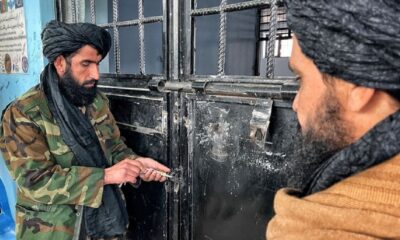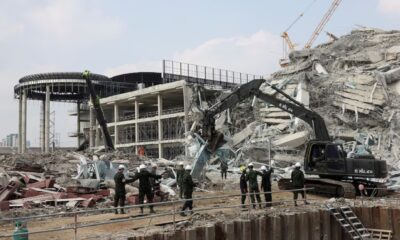Business
IEA discusses easing banking transactions with Kazakhstan
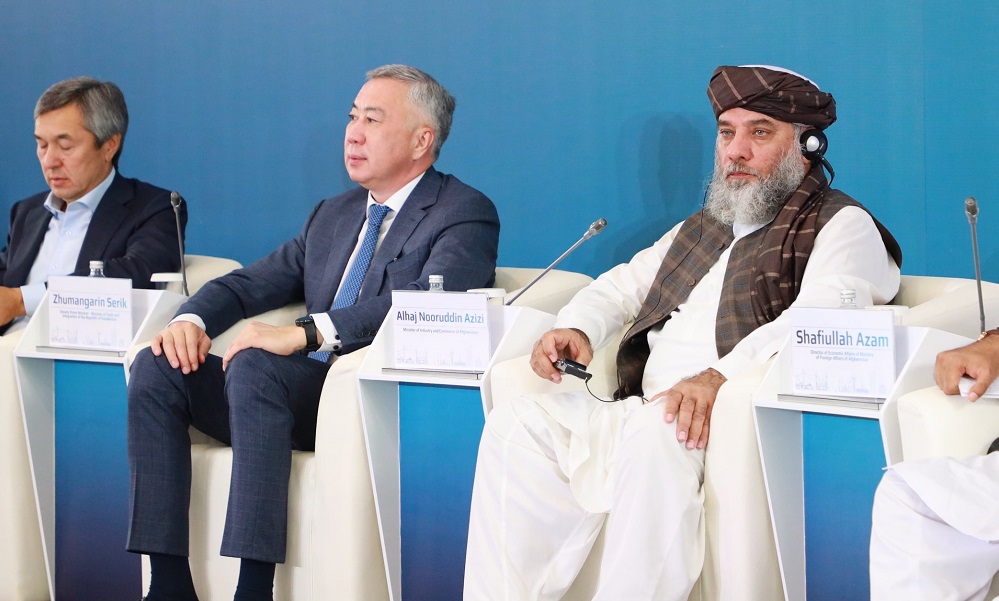
A delegation of the Islamic Emirate of Afghanistan (IEA) discussed facilitating international financial transactions with private banks on a recent trip to Kazakhstan in a bid to ease the Afghan banking sector’s isolation, the acting commerce minister said.
Nooruddin Azizi, acting Minister of Commerce and Industry, led a business delegation to Kazakhstan last week.
In addition to banking he discussed the possibility of preferential trade tariffs, telecommunications projects and transit routes, including for possible shipments of Russian oil to South Asia, he told Reuters in an interview on Wednesday.
“We had teams from Da Afghanistan Bank (Afghanistan’s central bank) and private banks in Kazakhstan, they discussed and are trying to find good ways to decrease the price of financial transactions … we don’t have any banking limitation with Kazakhstan,” he said.
Afghanistan’s banking sector has been hampered and international transactions severely limited since the IEA administration took over two years ago as foreign forces withdrew.
Some IEA leaders are subject to United Nations and United States sanctions. Many international banks have limited transactions with Afghan banks to reduce risk, economists and diplomats say, contributing to a stall in the financial system.
That has been exacerbated by the United States and other governments freezing Afghan central bank assets held abroad.
Azizi also said transactions that went ahead often incurred expensive fees, sometimes 5% of the transaction, which they hoped to reduce.
Fixing Afghanistan’s banking sector was a priority, he said, adding that there are no sanctions directly on banks. But he acknowledged international financial institutions were not easily facilitating transactions.
“It is the preference of some banks that they don’t want to deal with Afghanistan, they might think the trade volume is low, but for us it is very important,” he said.
The United States has issued exemptions to sanctions for humanitarian operations and at times helped facilitate specific transactions, such as an Afghan central bank payment to European companies to buy fresh bank notes.
But traders and international agencies say normal banking has not been restored, hampering the economy and causing headaches for traders and aid programs.
The United Nations, which uses billions of dollars a year to fund humanitarian operations, has to fly in pallets of cash in physical shipments to Kabul.
Business
36 mining contracts inked over the past year: Mines ministry

The Ministry of Mines and Petroleum says it has signed 36 large and small mining contracts, with a total value of $1.3 billion over the past year.
Officials from the ministry stated that these contracts include 10 large mines, 25 small mines, as well as projects related to cement, salt, marble, and a major gas extraction contract with Uzbekistan, all signed with both domestic and foreign companies.
Meanwhile, economic experts have emphasized the importance of increasing investments in the mining sector for the country’s economic growth. They have stressed that priority in mining contracts should be given to domestic companies.
“It is better to prioritize domestic investors over foreign ones,” said Kamaluddin Kakar, an economic expert.
In the meantime, members of the private sector also stated that if both foreign companies and Afghan investors can partner in the mining sector, this will not only foster investment development in the country but also bring positive changes in capacity building within the mining extraction sector.
Business
Afghanistan ships first consignment to Europe via Khaf-Herat railway
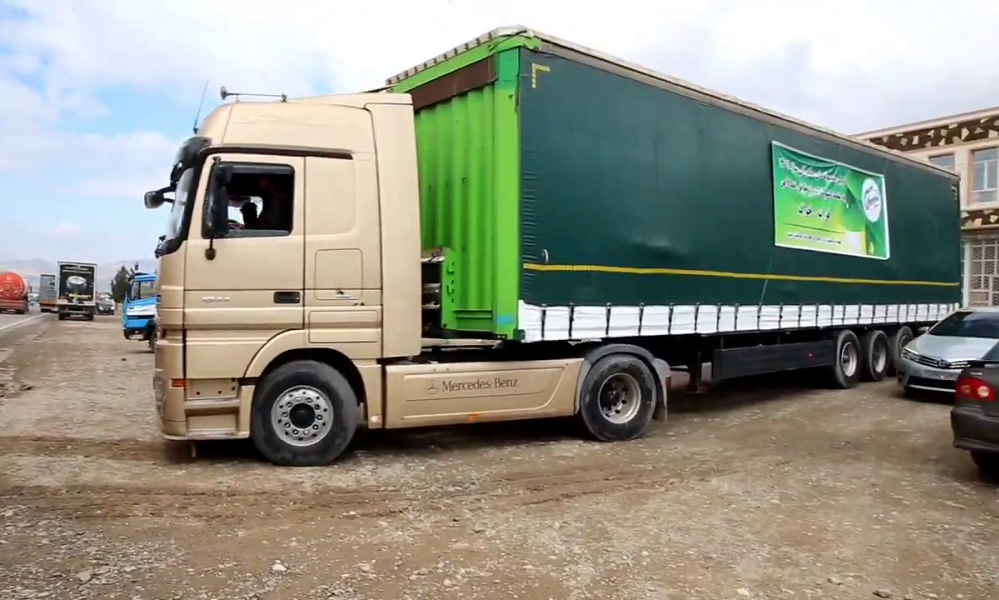
The press office of the Herat governor has announced the export of Afghanistan’s first shipment via the Khaf-Herat railway to Europe.
According to a statement from the office, the shipment includes 200 tons of dried fruits worth $1.2 million, which were exported to Turkey and Europe through the Khaf-Herat railway in the presence of Islam Jar, the governor of this province, and the Iranian Consul General.
The exported dried fruits in this shipment include pistachios, raisins, almonds, and pine nuts.
The statement added that over the past three months, more than 35,000 tons of goods have been transferred via the Khaf-Herat railway.
Business
Russia’s LPG exports to Afghanistan boom as Europe shuns it
The exports to Afghanistan, the main consumer of Russia’s LPG in the region, rose by 52% for the period to 71,000 tons.

Russia’s exports of liquefied petroleum gas (LPG) to Afghanistan and ex-Soviet states in Central Asia have jumped following introduction of European Union sanctions against Moscow at the end of 2024, industry sources said on Wednesday, Reuters reported.
The European Union’s sanctions against Russia’s LPG over the war in Ukraine took effect on December 20. The restrictions were proposed last year by Poland, one of Russia’s largest LPG importers.
LPG, or propane and butane, is mainly used as fuel for cars, heating and to produce other petrochemicals.
According to the industry sources, railway supplies of LPG from Russia’s plants, including the Kazrosgas joint venture with Kazakhstan, jumped to the region by 80% year on year in January – February to 140,000 metric tons, read the report.
The exports to Afghanistan, the main consumer of Russia’s LPG in the region, rose by 52% for the period to 71,000 tons.
Traders expect great scope for more supplies to Afghanistan, where annual demand for LPG is seen at around 700,000 tons per year.
-

 Sport5 days ago
Sport5 days agoACB names Afghanistan A squad for tri-nation series
-
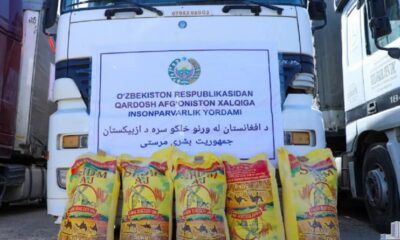
 Latest News5 days ago
Latest News5 days agoUzbekistan sends essential food aid to Afghanistan
-

 International Sports4 days ago
International Sports4 days agoIPL 2025: Last over drama; Ashutosh Sharma clinches win for Delhi Capitals
-
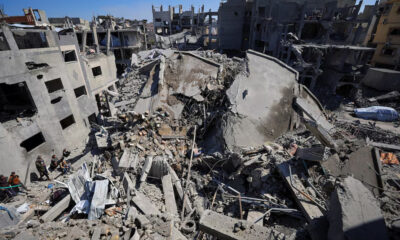
 Regional4 days ago
Regional4 days agoEgypt makes new proposal to restore Gaza truce as Israeli strikes kill 65
-

 Sport4 days ago
Sport4 days agoAfghanistan eliminated from Asian Beach Soccer Championship
-
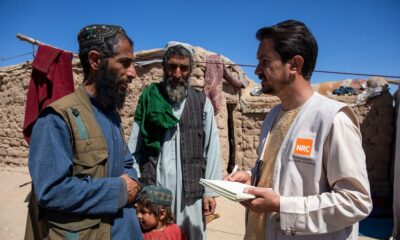
 Latest News4 days ago
Latest News4 days agoNorwegian Refugee Council cuts back on essential humanitarian services in Afghanistan
-
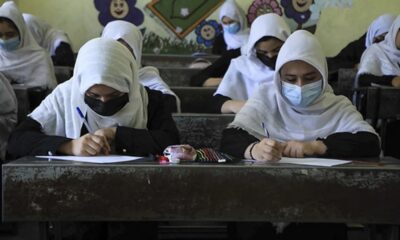
 Latest News4 days ago
Latest News4 days agoUN warns over 4 million Afghan girls will be deprived of education by 2030 if ban continues
-

 World3 days ago
World3 days agoSecretive Chinese network tries to lure fired US federal workers, research shows




